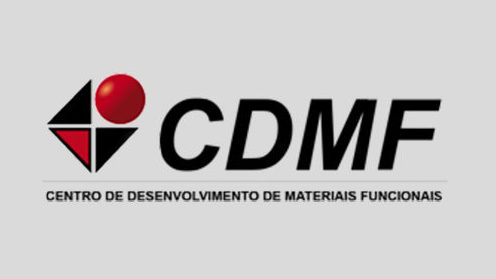
Based on our previous experience, we propose a step forward in materials science research with the formation of a multidisciplinary Center for the Development of Functional Materials (CDFM). This center will be an offshoot of the Multidisciplinary Center for the Development of Ceramic Materials (MCDCM) which received FAPESP support from the first version of the CEPID program. The core focus of our center is the ability to synthesize materials with a controlled chemical composition, a crystallographic structure and morphology as well as to combine theory, simulations and experimental results. In the CDFM, we will use these skills for the development of functional and nanostructured materials to address new societal needs by finding solutions in three emerging main issues: renewable energy, health, and the environmental sustainability.
We propose the formation of a multidisciplinary center denoted as the Center for the Development of Functional Materials (CDFM). This center is an evolution of the Multidisciplinary Center for the Development of Ceramic Materials (MCDCM) that received FAPESP support from the first version of the CEPID program. In the 21st century, global needs have changed drastically with increased population, and three main issues are emerging to meet those needs: renewable energy, health, and environmental sustainability concerns. In the same period, the materials science (MS) community has been engaged in the research and development of functional and nanostructured materials to address these new societal needs. Therefore, we propose to combine the research of functional and nanostructured materials to find solutions for new societal needs.
Based on previous experience, we are thus proposing a step forward in materials science research. In the CDFM, the research theme is the development of functional materials. Actually, the core of our center is the ability to synthesize materials with a controlled chemical composition, a crystallographic structure and morphology. An inherent part of our center has been the development of innovative methods and techniques based on the combined use of theory, simulations and experimental results in order to interlink theoretical knowledge and experimental approaches. Thus, we will use these skills for the research and development of functional and nanostructured materials with tailored properties to solve problems related to renewable energy, health, and the environmental sustainability.
In the new center, our proposal in terms of innovation and technological transfer will be directly connected to the basic research program (i.e., with functional nanostructured materials) and will act in the following segments: 1) Pilot plants for functional nanoparticles; 2) development of new applications for functional materials, and 3) generation of spin-off companies.
One fundamental target of this new center is to gain international recognition as a key research center for functional materials. This objective will be achieved through the publication of relevant papers in this field in major international journals as well as the strengthening of our collaborations with internationally recognized laboratories in functional materials. Moreover, additional efforts will be made to attract good international students. To accomplish this goal, every year we intend to promote a school of advanced studies in functional materials offering support to excellent students as well as inviting the best researchers in the field to give lectures to promote our center as an attractive global entity. The main idea is to publicize the research of our center and transform our laboratories to attract international Ph.D. students and post-doctoral researchers.
Our efforts regarding activities related to education and knowledge dissemination will be focused on five areas: 1) Improvement of science education through activities directed to elementary and high school students and their teachers as well as the development of interactive learning materials; 2) the attraction of young people to scientific careers through the interest of high school students in science and university studies; 3) the education of undergraduate and graduate students by contact with advanced topics in materials science and training in scientific knowledge diffusion; 4) the development of interactive scientific diffusion products; and 5) the enhancement of qualitative materials science and related topics in the media, concomitantly through press office services, research media training and journalist training.
In order to insure the full implementation of CDMF, all the participant universities will provide the necessary physical infrastructure, administrative staff and research support. With respect to the community technology transfer, the three participating universities have a very well organized Innovation Agency which will take care of the intellectual protection and technology transfer support. UNESP which will be the core administration of CDMF will provide 1 (one) Executive Manager; 1 (one) Manager of Technology Transfer; 1 (one) Manager of Education and Knowledge Dissemination; 2 (two) Researchers (one in the first and one in the second year of implementation of CDFM); 2 (two) Laboratory Technicians (one in the first and one in the second year of operation of CDFM); research buildings are being constructed in both campus Araraquara and Bauru. The University of São Paulo will provide a research building as well as administrative support for the center. Finally the CNPEM/LNNANO Sincrotron will provide 20% of the senior researcher´s time, 1 post doctoral fellow and 2 laboratory technicians or engineers.
